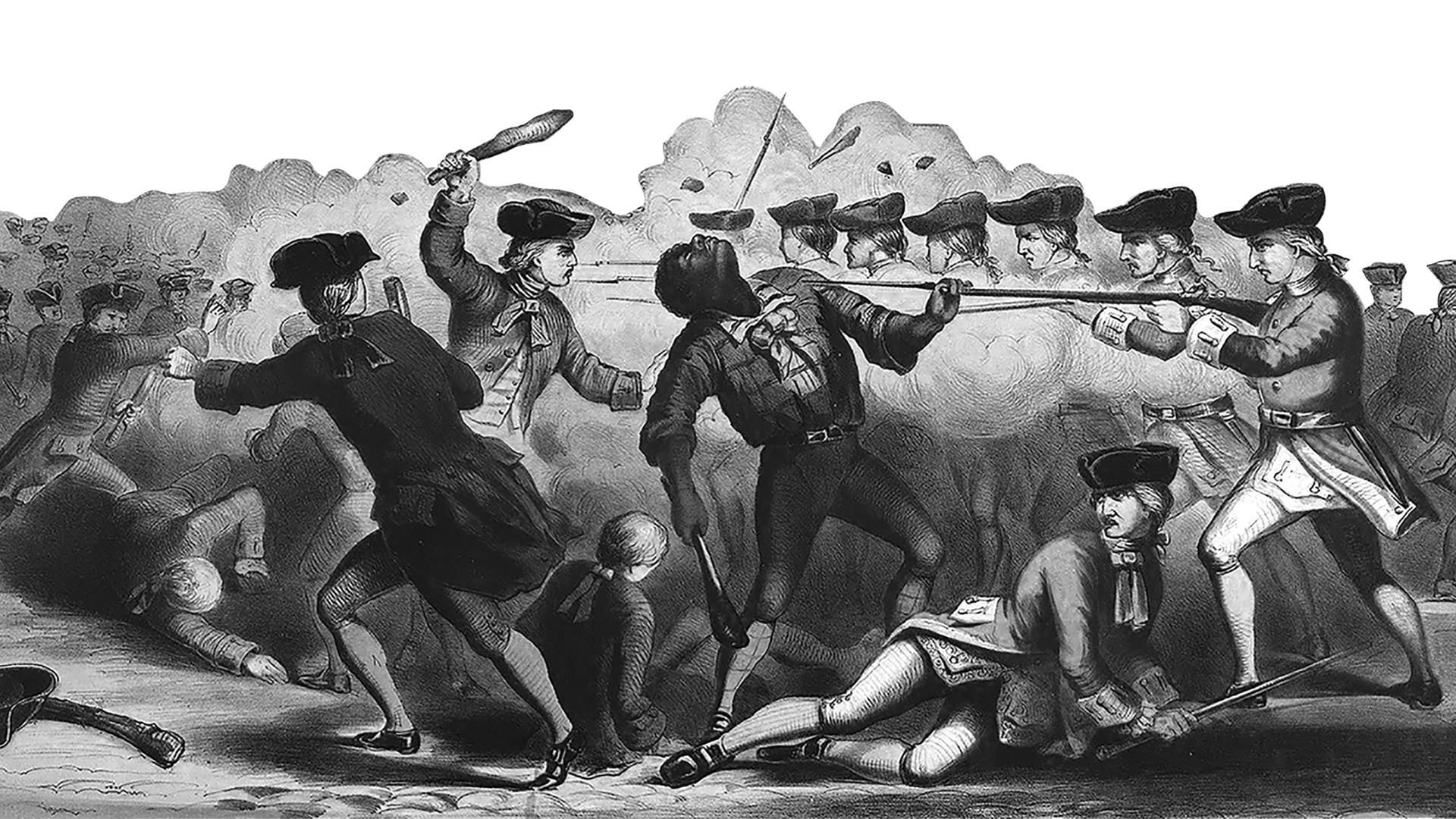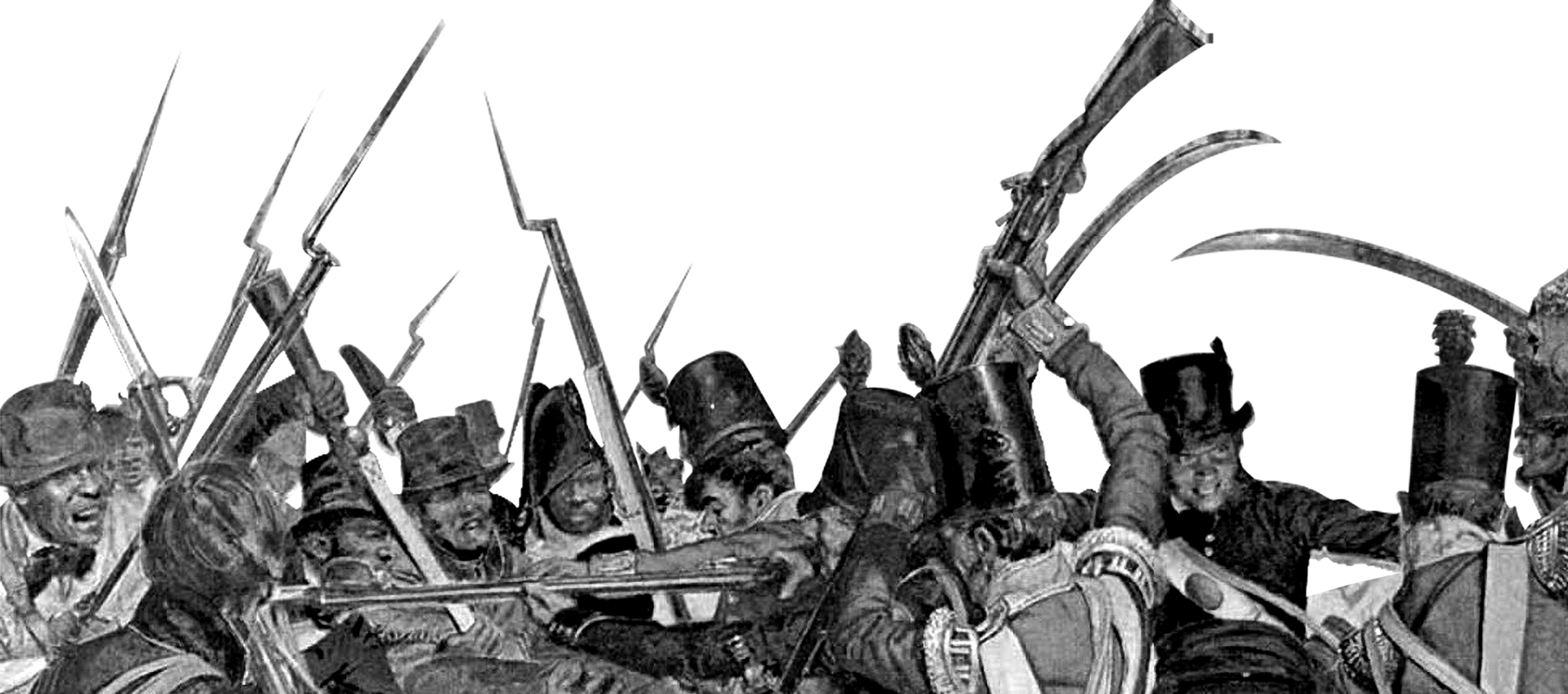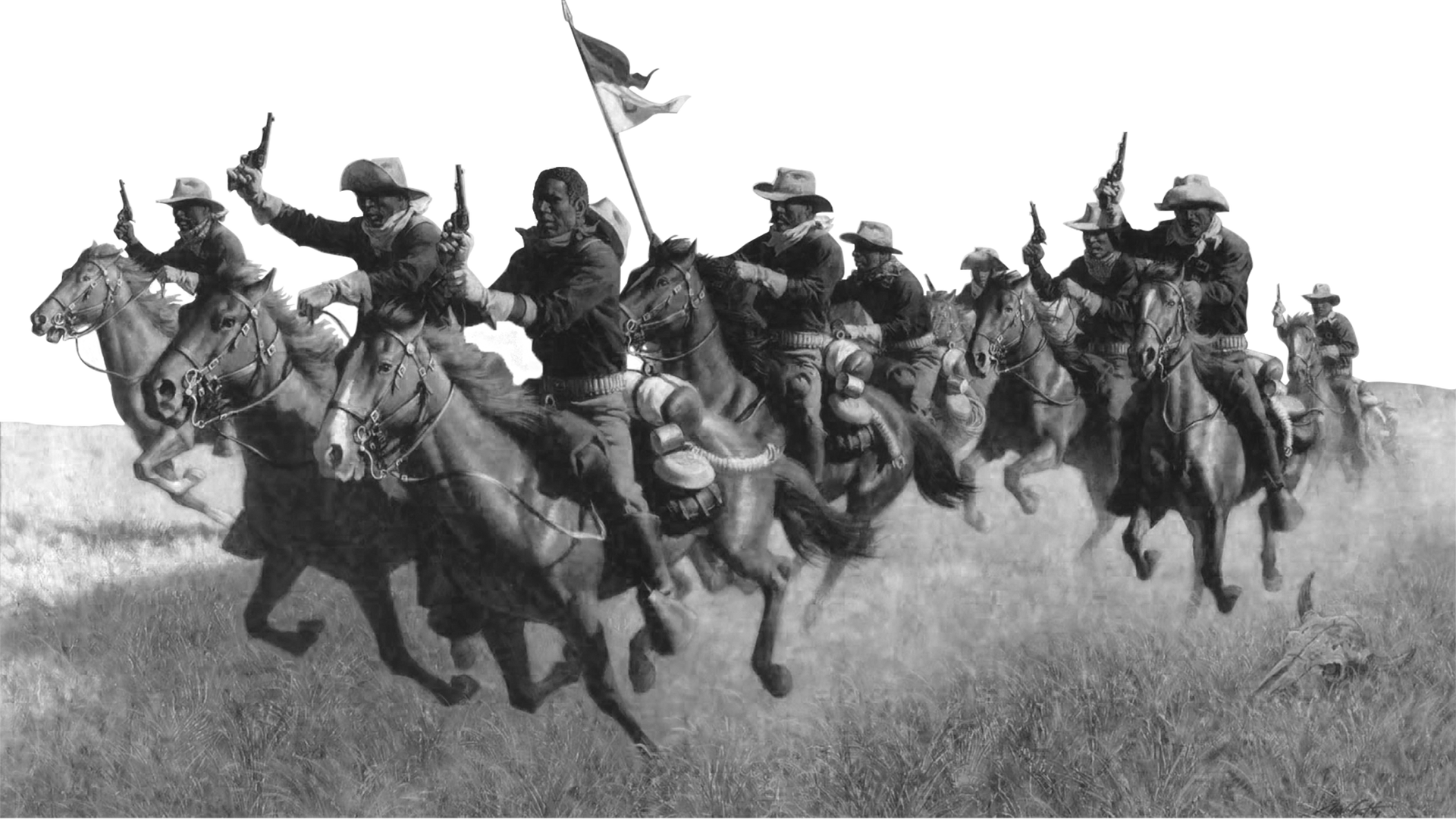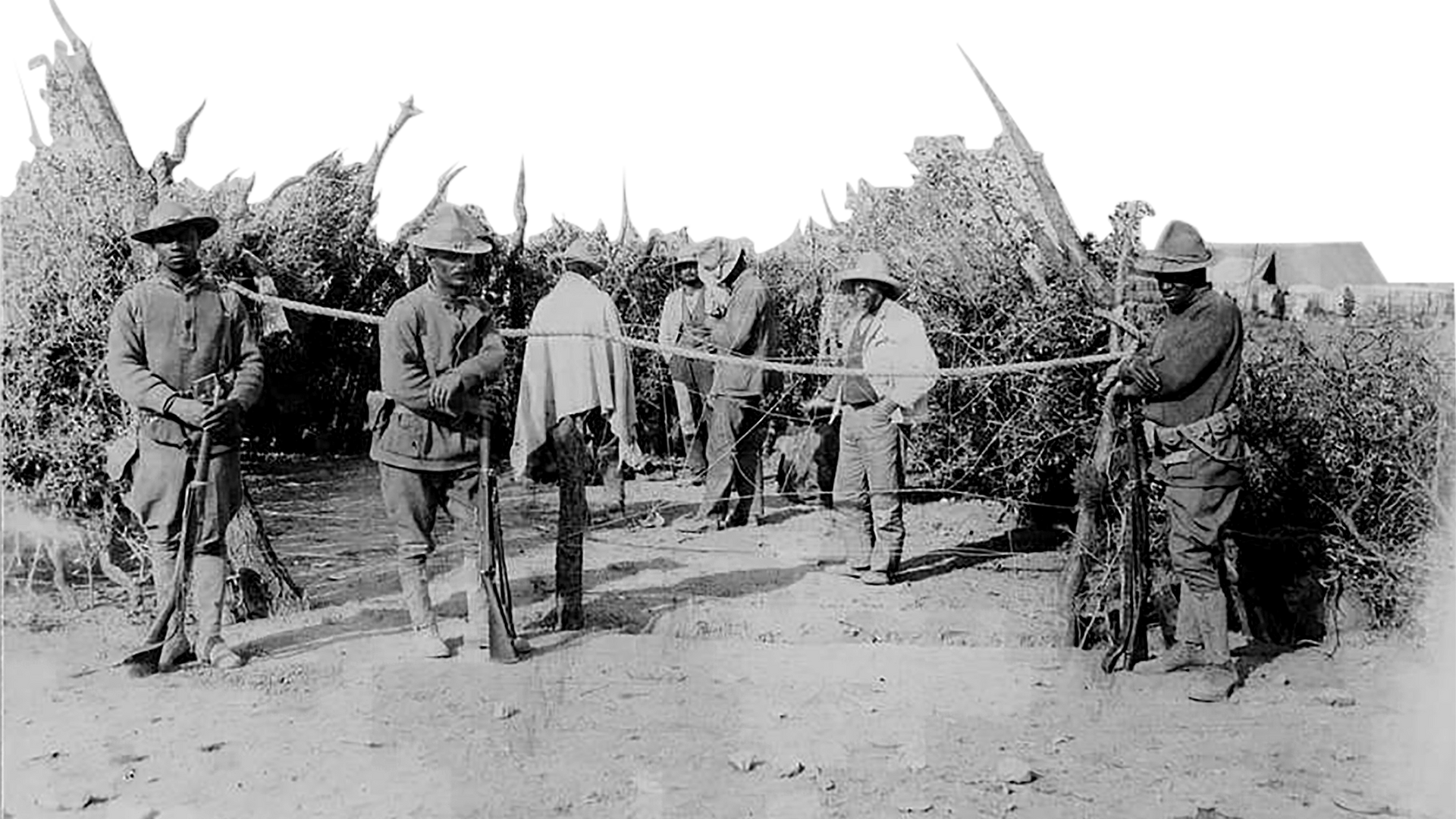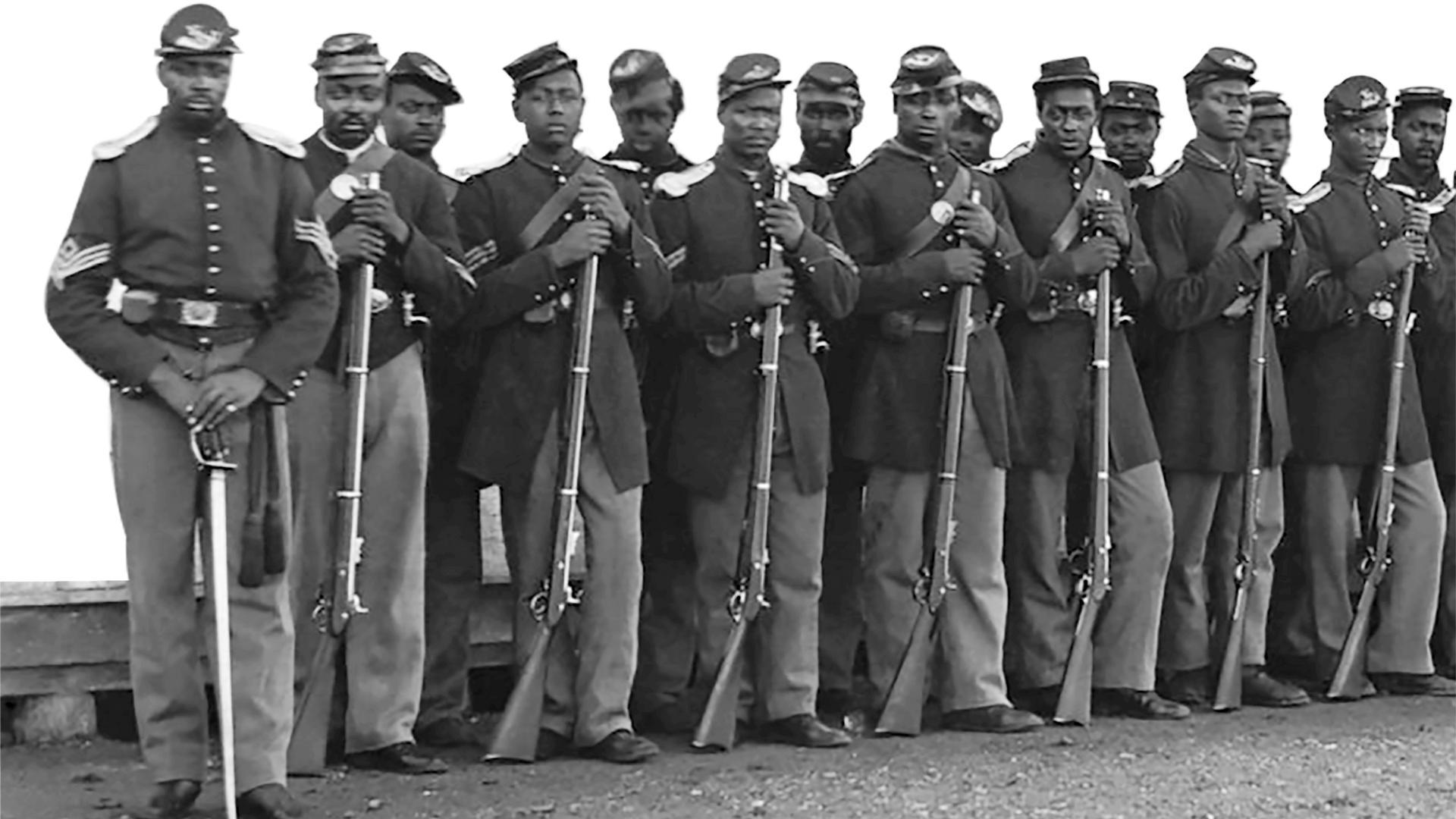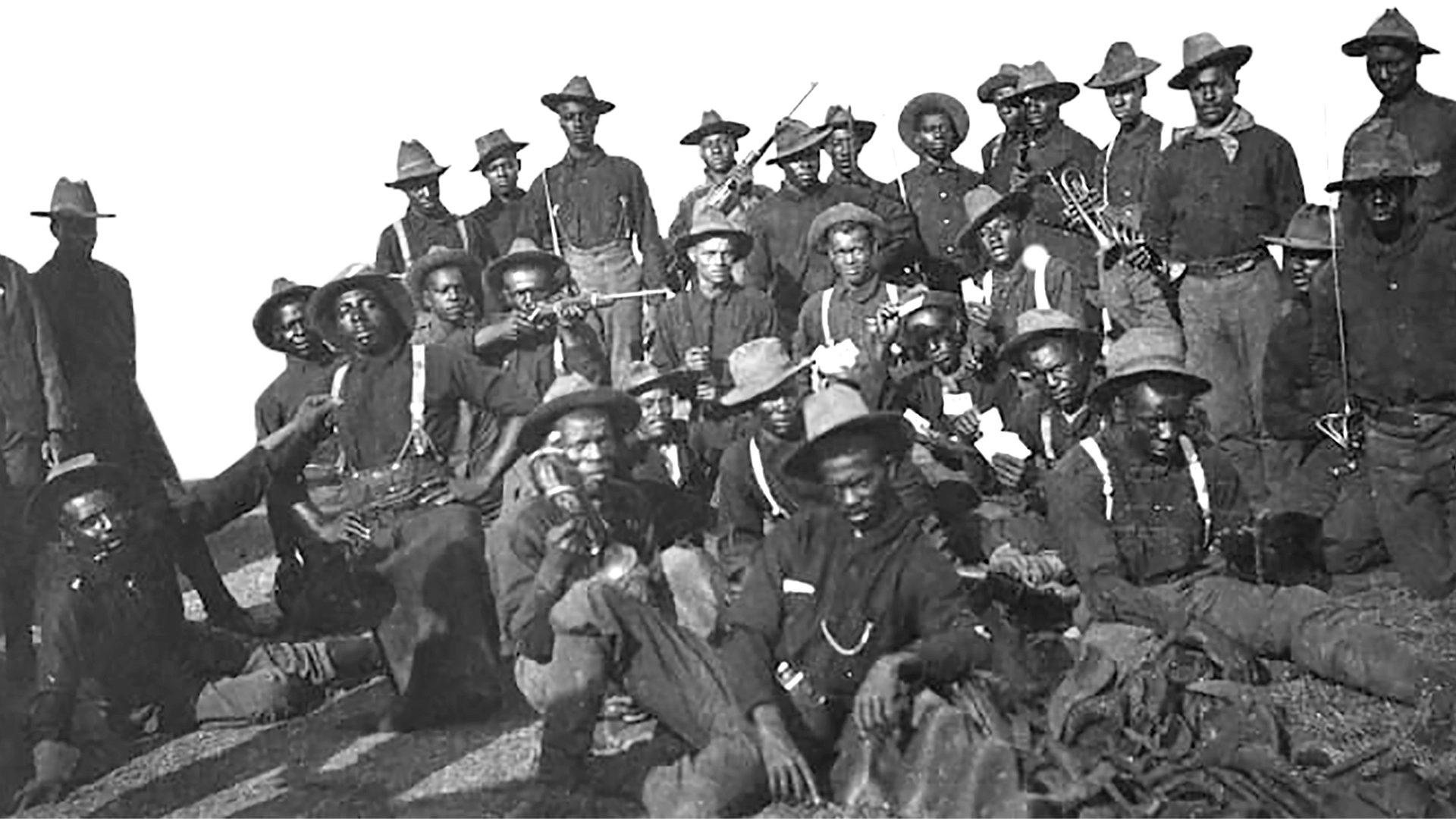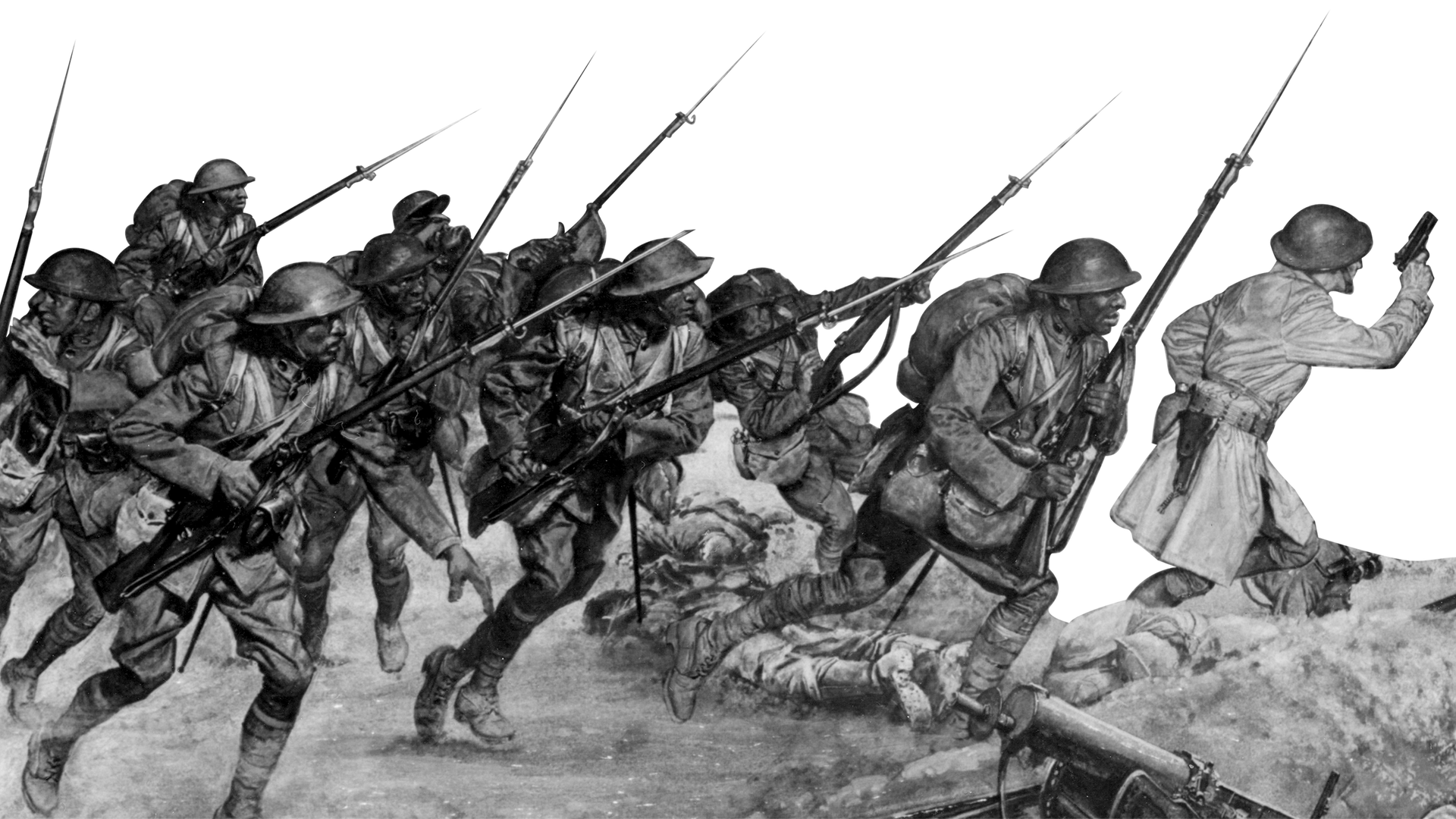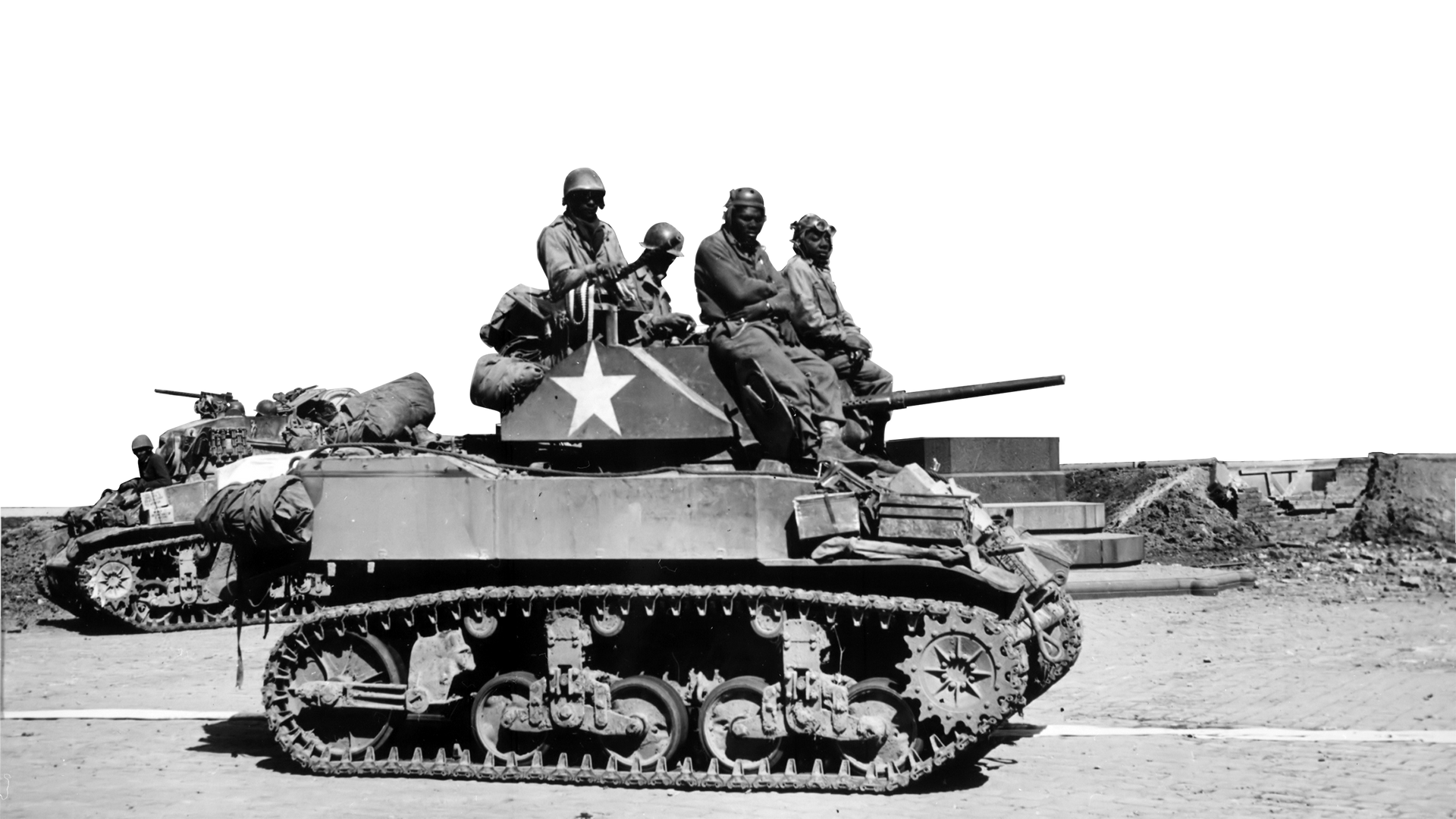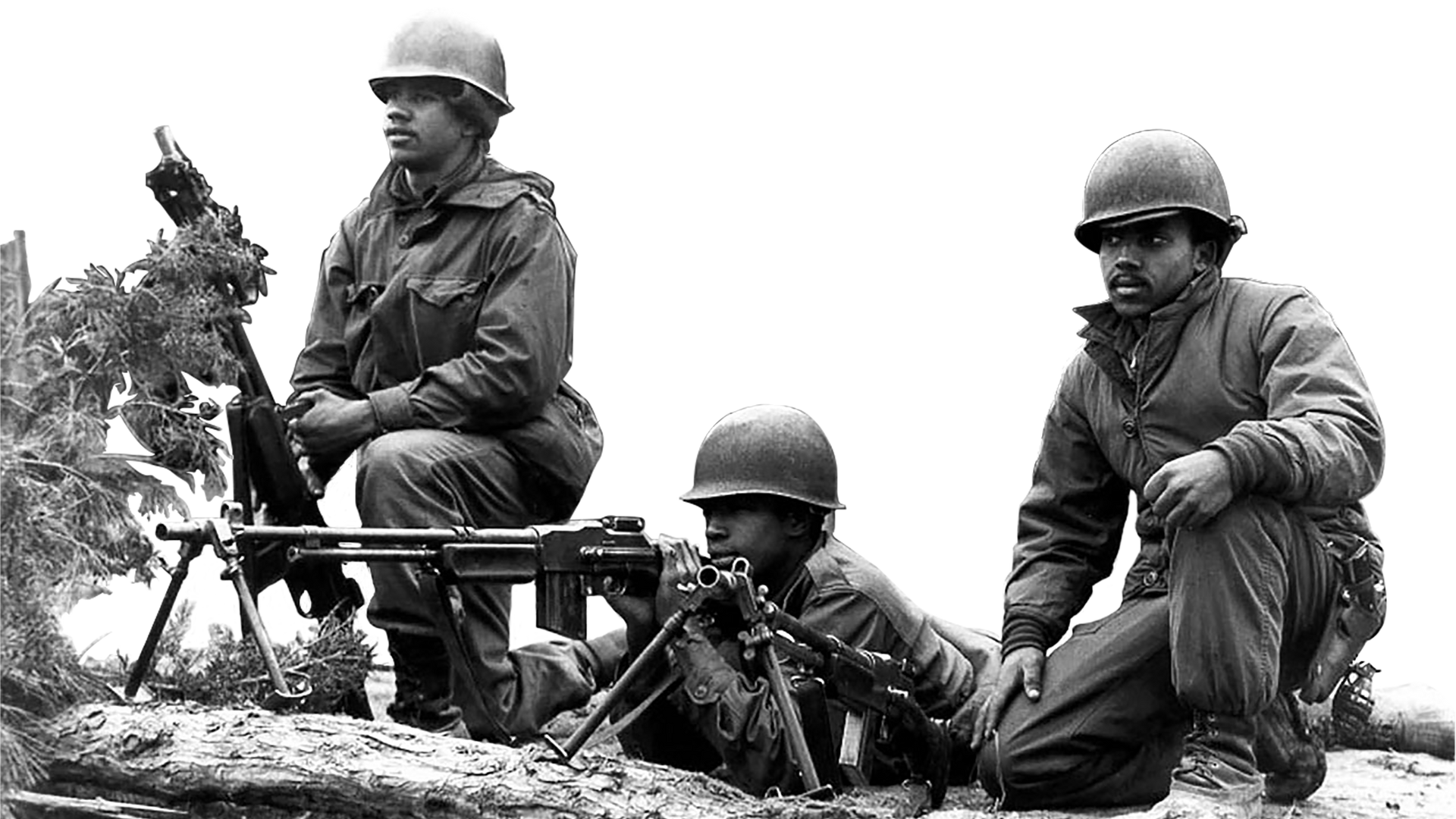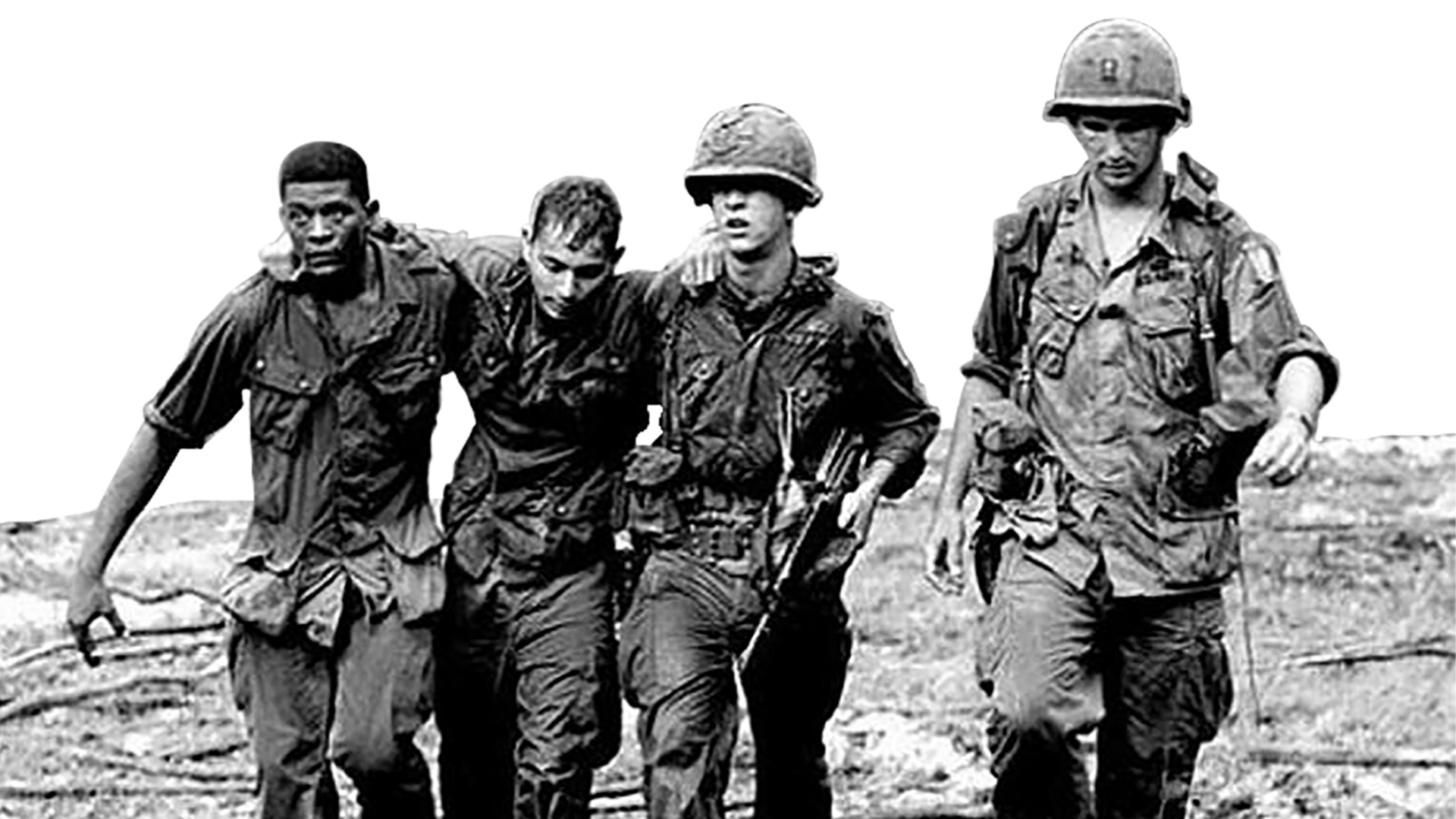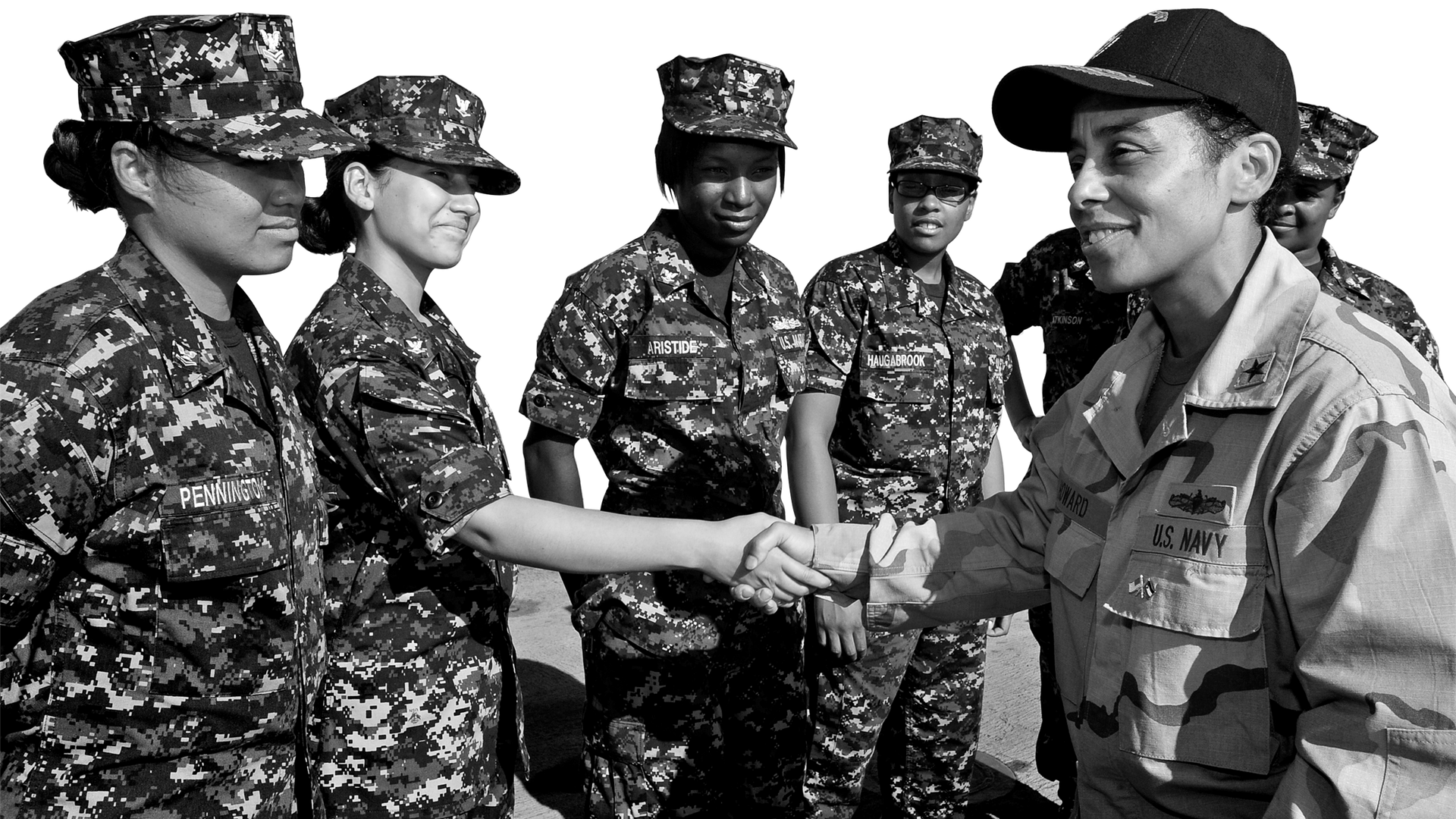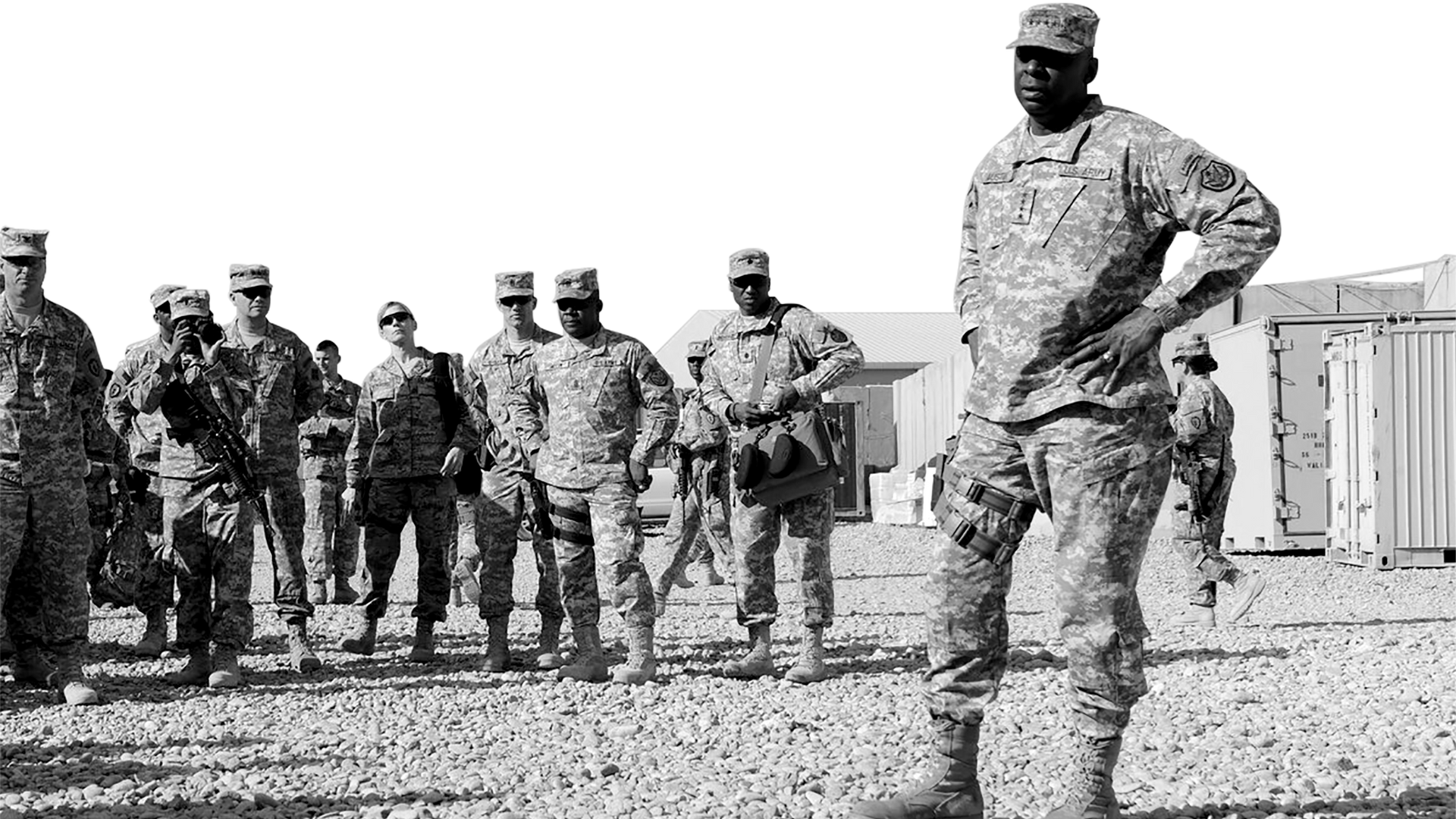Honoring Our Heroes
ShowHide Transcript
African Americans have always been crucial to the nation’s success—in every walk of life, every field of study, every industry, in peace and in war.
So it is no surprise that whenever the country called on its people to serve, Black patriots answered the call.
The United States Armed Forces, as representatives of the vibrant and innovative peoples of America, have a long history filled with “firsts.” On land, air, and sea, African Americans have fought and sacrificed in service to the United States Armed Forces from its conception.
Crispus Attucks, a free Black man living in Boston in 1770, is considered to be the first person to give their life for the cause of American independence.
African American Soldiers answered the call to fight in every American war and conflict, from the Revolutionary War, in which they served in integrated units, to the war in Iraq and beyond.
Yet they often served without the benefits of recognition, even citizenship, and in spite of unfair treatment, discrimination, and even violence by their own comrades in arms. Some were denied honors they had earned. Many were underpaid or not paid at all.
Like all Americans who benefited from their service, we owe it to them to learn from their stories, to remember their names.
Some are well-known, such as Colin Powell. As the first African American Secretary of State and chairman of the Joint Chiefs of Staff, he was one of the highest-ranking Black Americans in the history of the Federal Government.
Others are lesser known, but no less worthy of recognition. Hazel Johnson-Brown, after decades of service as a nurse and teacher in the Army Nurse Corps, became the first African American woman to achieve the rank of brigadier general in the U.S. Army, in 1979.
In 1995, Marcelite Jordan-Harris became the first Black woman to serve as a major general. At the time, she was the highest-ranking woman in the U.S. Department of Defense.
That same year, Frank E. Petersen became the first Black Marine Corps general. A few years later in 1982, Roscoe Robinson Jr. became the first Black four-star general. Three years after that, Sherian Cadoria became the first Black woman general.
Today, about 13 percent of the U.S. population is African American. Yet the proportion of Black men and women in the armed forces is much higher: Black men comprise nearly 17 percent, and Black women nearly 30 percent.
This monument honors the service and sacrifice of all Black men and women in the armed forces of the United States. Their service to their country and its ideals, even in the face of ignorance and discrimination, stands as an example for all Americans. These are their stories.
African Americans have always been crucial to the nation’s success—in every walk of life, every field of study, every industry, in peace and in war. So it is no surprise that whenever the country called on its people to serve, Black patriots answered the call.
Stories
![]()
American Revolution, 1775 to 1783.First In, Last Out
![]()
During the American Revolution (1775–1783), Black men and women were essential in the struggle for American independence. From Crispus Attucks in the Boston Massacre to James Lafayette at the battle of Yorktown, their sacrifice and bravery helped set the stage for our nation's founding.
![]()
War of 1812, 1812 to 1815.The Saviors of New Orleans
![]()
Just before Christmas during the War of 1812 (1812–1815), Free Black soldiers under the command of Second Major Joseph Savary prevented British troops from capturing New Orleans. Savary was the first Black officer in the U.S. Army.
![]()
American Indian Wars, 1817 to 1890.Wars in the West
![]()
During the American Indian Wars (1817–1890), also known as the Wars in the West, nearly one in five troops were African American. Native Americans who encountered these all-Black regiments found them particularly fierce fighters and called them “Buffalo Soldiers.”
![]()
Mexican War, 1846 to 1848.The Ride of Jacob Dodson
![]()
During the Mexican War (1846–1848), African Americans answered the call to serve. An 18-year-old Black man named Jacob Dodson rode with explorer John C. Fremont on an epic 800-mile journey to warn of a possible attack. Dodson played a key part in the American victory in California.
![]()
Civil War, 1861 to 1865.By Land or By Sea
![]()
In the Civil War (1861–1865), the war fought for their right to freedom, African American men and women gave their all. Despite the reluctance of some white officers, nearly 200,000 Black Americans served in the United States Armed Forces.
![]()
Spanish American War, 1898.The Charge
![]()
During the Spanish American War (1898), Black Americans served their country with courage and valor from Puerto Rico to the Philippines. Teddy Roosevelt’s 1st Volunteer Cavalry, the “Rough Riders,” might have been wiped out if it weren’t for the all-Black units who fought ahead of them.
![]()
WWI, 1917 to 1918.Fighting Like Hell
![]()
In World War I (1917–1918), over a quarter million African Americans served in the greatest conflict of its time. The Harlem Hellfighters, legendary American heroes, found themselves fighting under French commanders.
![]()
WWII, 1941 to 1945.Black Panthers of the 761st
![]()
World War II (1941–1945) was the last war in which the U.S. Armed Forces remained fully segregated by race. More than one million African American men and women served in both support roles and combat units.
![]()
Korean War, 1950 to 1953.Changing Tides
![]()
By the start of the Korean War (1950–1953), two years after President Truman’s order to desegregate the Armed Forces, many units remained segregated. But this new conflict that erupted in Asia would force the U.S. military to truly desegregate.
![]()
Vietnam War, 1964 to 1975.War on Many Fronts
![]()
The Vietnam War (1964–1975) is unique among American wars for the significant unrest and opposition on the homefront. The Civil Rights Movement was already in motion at the start of the war, and by 1967 it had grown stronger.
![]()
Persian Gulf War, 1990 to 1991.Warrior Women
![]()
During the Persian Gulf War (1990–1991), the U.S. military was an all-volunteer force. And African Americans made up one quarter of them. Over 35,000 women enlisted, and almost half of them were African American.
![]()
Global War on Terror, 2001 to present.Brothers in Arms
![]()
In the Global War on Terror (2001–Present), also known as the Wars in Iraq and Afghanistan, Black Americans have served with valor and heroism. Their legacy of service and sacrifice exemplifies the bonds of brotherhood, standing as an example for all Americans.

